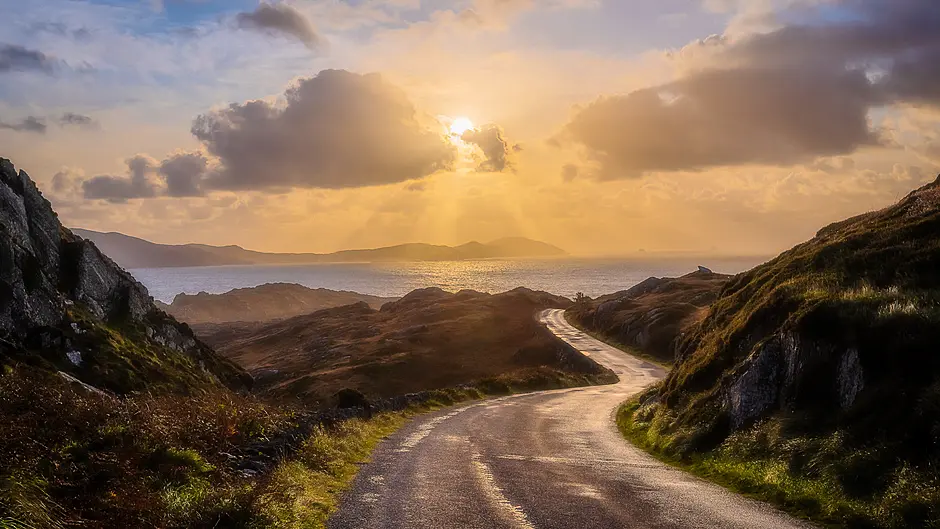As a former auctioneer who still has a keen interest in all things property, CONOR POWER takes a look at the types of buyers that have graced the West Cork property market over the years.
WHEN I first started selling houses in West Cork back in 1996, it was at a point when those of the post-war wave of foreign buyers (from the 1960s and 1970s) were selling their homes; mainly because they were getting old and wanted to return home to be closer to grandchildren and children while they still could.
The nationalities of overseas buyers then were predominantly German, British and Dutch, with a smattering of others, such as American, French and Belgian.
In the years that followed World War II, many people in Continental Europe were preoccupied with lasting peace and tranquillity.
As we moved into the more unstable 1960s, the Arms Race was in full swing and the dark cloud of the Cold War looked ever-more ominous.
Many people saw Ireland as a peaceful, neutral country with an agreeable climate. One such former client of mine was a German national who followed precisely that path for those particular reasons.
Having survived the Second World War and even the Battle of Stalingrad by desertion, he and his wife picked out West Cork as the ideal place to settle, living out their final days as blissfully as they could have imagined.
Another factor during the 1960s was the Dutch government’s policy of pushing their citizens to get out of their country.
Famously pragmatic, the Dutch took a look at their overcrowded country in the 1950s and decided upon a policy of encouraging their citizens to leave.
With many publications from the Dutch authorities advocating emigration as the key to happiness and fulfilment, some three million Dutch people emigrated in the post-War period.
Their most popular choices of destination were Canada, USA and South Africa, but this modern-day ‘wave’ of Dutch emigration had its effects on the Irish property market too.
Coming from a largely flat country, they were easily seduced by West Cork’s beautifully lumpy landscapes and craggy coastlines.
The Dutch are also great linguists with a proud trading history and learning English (so close to their own language) didn’t pose much of an obstacle.
By the 1990s, a major turning point came.
With the fall of the Berlin Wall, Europe’s lasting peace looked like it really was going to last so the reasons that pushed many German and Dutch people to come to Ireland became less important.
At the same time, the conflict in Northern Ireland finally came to a close and this opened up the housing market to a much larger number of people in Great Britain.
It’s hard to visualise it now, but all through the 1980s and before, the average English resident would look upon Ireland as a hostile place and one of the last countries they’d consider visiting.
With the advent of the Peace Process – that truly kicked off with the Ceasefire in 1994 – relationships between Ireland and the UK began to normalise as colonial Britain and Catholic Ireland had transformed into newer, more inclusive versions of themselves.
Prejudices began to dissipate and as Ireland’s wealth began to grow, being Irish began to be associated with being ‘cool’ in Britain.
By the early 2000s, it was British buyers that were dominating the foreign-buyers’ market in West Cork.
There were now two strong reasons for a lot of English people to buy a property in West Cork: firstly, it was a very sound investment.
The prices of houses here were just a fraction of what you’d have to pay to get the equivalent experience in England; secondly, the way of life here was instantly appealing, particularly to those in their mid-thirties who were seeking somewhere better to raise their children. And, we share the same language … more or less!
I met many people from fast-growing cities in England at that time who all seemed to be repeating the refrain that England was now ‘full’, with no room left to work and raise a family in peace.
West Cork seemed to offer them the ideal solution and this notion was hammered home repeatedly by the many overseas property programmes on British television at the time.
Today, the picture has changed again. In the last two decades since I’ve been directly involved in selling houses in West Cork, Ireland has transformed into a more multicultural country, with a much wider range of nationalities now living in West Cork.
Whereas there used to be only a handful of nationalities that dominated, now there are dozens.
The number of people from India settling and working here, for example, isn’t very big but it simply wasn’t a factor before.
The same could be said of those from Eastern Europe and the Philippines. In the early 2000s, most Polish and Latvian immigrants were renting properties but now many of them have bought their own places.
According to Bantry auctioneer Denis Harrington of Harrington Estates, there have been some interesting trends in the last year or so, with a resurgence of Dutch and Swiss buyers purchasing homes in West Cork.
‘So too are German and South African buyers.’ he adds.
‘The biggest trend, however, is that of returning ex-pats, and this is a mixture of early retirees and those with flexible work scenarios … we see the UK-based market as a constant one, but it’s not as predominant in the last couple of years. The number one motivation shared by all is the quality of life and safety on offer, followed by our beautiful countryside and democratic values!’










